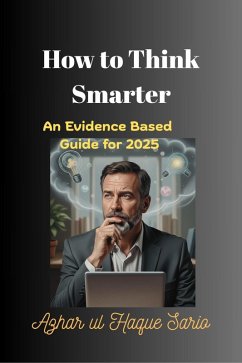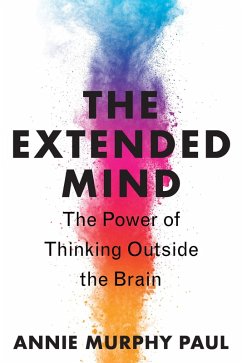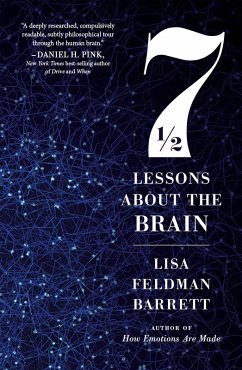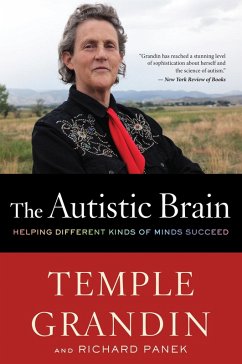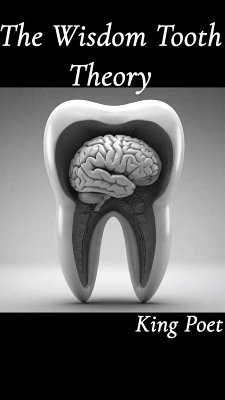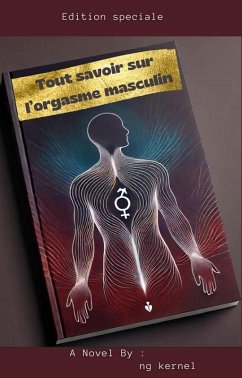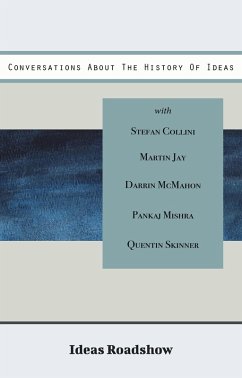
Conversations About Neuroscience (eBook, ePUB)
Versandkostenfrei!
Sofort per Download lieferbar
6,99 €
inkl. MwSt.
Weitere Ausgaben:

PAYBACK Punkte
3 °P sammeln!
FIVE BOOKS IN ONE! This collection includes the following 5 complete Ideas Roadshow books featuring leading researchers providing fully accessible insights into cutting-edge academic research while revealing the inspirations and personal journeys behind the research. A detailed preface highlights the connections between the different books and all five books are broken into chapters with a detailed introduction and questions for discussion at the end of each chapter: I. Constructing Our World: The Brain's-Eye View - A conversation with Lisa Feldman Barrett, Professor in Psychology at Northeast...
FIVE BOOKS IN ONE! This collection includes the following 5 complete Ideas Roadshow books featuring leading researchers providing fully accessible insights into cutting-edge academic research while revealing the inspirations and personal journeys behind the research. A detailed preface highlights the connections between the different books and all five books are broken into chapters with a detailed introduction and questions for discussion at the end of each chapter: I. Constructing Our World: The Brain's-Eye View - A conversation with Lisa Feldman Barrett, Professor in Psychology at Northeastern University. This extensive conversation explores Lisa's Feldman Barrett's research on how the brain works and the development of her theory of emotion: every moment of our life, our brain is anticipating and making sense of sensory inputs from its environment-the combination of the internal environment of the body and the external environment-and our brain uses conceptual knowledge to do that.II. Knowing One's Place: Space and the Brain - A Conversation with Jennifer Groh, Professor of Psychology and Neuroscience at Duke University. After an inspiring story about how she became interested in neuroscience, this conversation examines Jennifer Groh's extensive research on how the brain combines various streams of sensory input to determine where things are, together with the corresponding implications for a wide range of issues, from neuroplasticity to our predictive brain to evolutionary mechanisms.III. Vision and Perception - A Conversation with Kalanit Grill-Spector, Professor in Psychology and the Stanford Neurosciences Institute at Stanford University. Kalanit Grill-Spector's is a vision specialist with a background in computational neuroscience. Her research examines how the brain processes visual information and perceives it. This extensive conversation explores how functional imaging techniques are used to visualize the brain in action and how it functions to recognize people, objects and places. Kalanit also discusses how the anatomical and functional properties of the brain change from infancy to childhood through adulthood, and how this development is related to improved visual recognition abilities.IV. Investigating Intelligence - A conversation with John Duncan, Professor of Neuroscience at University of Cambridge. This conversation examines fascinating questions in neuroscience such as: What is intelligence and what does IQ testing tell us? Can intelligence be measured and improved? What role does our frontal lobe play in executive control? John Duncan has rigorously investigated these types of issues for years and this conversation covers all those questions plus topics such as impairments following brain damage, functional brain imaging, and the brain basis for attention, intelligence and cognitive control.V. Minds and Machines - A conversation with Miguel Nicolelis, Professor of Neurobiology, Neurology, Neurosurgery, Biomedical Engineering, Psychology and Neuroscience and Orthopaedic Surgery and Co-Director of the Center for Neuroengineering at Duke University. This thought-provoking conversation dives into Miguel Nicolelis' extensive and important research for over 20 years now and how he has been blurring the line between science fiction and science fact, developing increasingly sophisticated ways of harnessing the thoughts of rats, monkeys and humans to drive mechanical devices in the rapidly emerging field of brain-machine interfaces. As he continues to explore how best to apply this fascinating technology to liberate paralysis victims and Parkinson's sufferers from their neurological constraints, Nicolelis remains focused on challenging conventional wisdom of what the brain is and how it works, consistently probing the evolving frontier between body and mind.Howard Burton is the creator and host of Ideas Roadshow and was the Founding Executive Director of Perimeter Institute for Theoretical Physics.
Dieser Download kann aus rechtlichen Gründen nur mit Rechnungsadresse in A, B, BG, CY, CZ, D, DK, EW, E, FIN, F, GR, HR, H, IRL, I, LT, L, LR, M, NL, PL, P, R, S, SLO, SK ausgeliefert werden.




